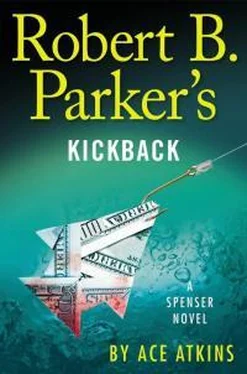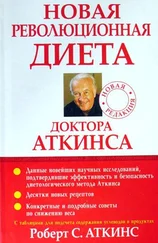I smiled. “I don’t scare easily.”
She smiled back. “You don’t appear to.”
14
I drove back to my office and spent the rest of the afternoon online, following the funding trail for the two judges and their programs. I learned that the old Office of Public Welfare was now defunct and had splintered into myriad state offices with fancy titles. Some of the work of Public Welfare, EBT cards and such, now went to the Department of Transitional Assistance, while the placement, care, and detention of kids went to the Department of Youth Services. All this sleuthing was exciting as hell. If only Bulldog Drummond had the Internet.
It took two minutes to find a contact list for the DYS staff in Boston. I centered on administration and finance, the most likely to call an audit, and picked up the phone to start the cold calls.
Instead, I decided to visit the office in person. Perhaps my charisma and charm might open doors. It had absolutely nothing to do with the fact that I hadn’t eaten and it was past three p.m. and the offices were on Washington near Chinatown. Hawk had introduced me to a place that made the best dumplings this side of Taipei.
I drove the short distance from Boylston past the Common, up to Tremont, and then crossed over to Washington. The offices were on the fifth floor of the old Washington-Essex Building where Duke Ellington once played the RKO theater. I recalled the same theater showing a lot of kung-fu movies and porn before the neighborhood got cleaned up. The neighborhood always made me think of April Kyle.
The fifth floor was a rat’s maze of cubicles, with a receptionist stationed by the elevators. I had memorized a couple names from the DYS contact list. I dropped them. One was on vacation. Dave Nichols was on the phone. “Do you have an appointment?” an attractive young black woman said.
“Would Mr. Nichols handle audits?”
“It depends on the region,” she said. She had very big eyes and a wonderful mouth.
“Blackburn district, but this was two years ago,” I said.
“I believe that’s him. Let me check.”
I removed my Brooklyn Dodgers cap and told her how much I appreciated the assistance.
I watched her steel herself against my charms and make a couple calls. “Actually, that would have been John Blakeney.”
“Is he still with DYS?” I said, trying to imply I was in-the-know with my old pals.
“Let me check.”
Blakeney was two floors down with DTA. All the acronyms were starting to give me a headache. It seems that the old Department of Public Welfare hadn’t really moved, only rejiggered their flow chart. I again took the elevator.
Blakeney was on the phone, a coworker told me. I waited in a very small, very hard red plastic chair by the elevator. I checked my phone for messages and stared straight ahead at a framed print of a young girl backed into a corner clutching a teddy bear. A hotline number was listed at the bottom.
A chalk-thin young man, completely bald on top with the sides of his head shaved, came up to me. He wore a green-striped dress shirt with a dark green tie. He had small eyes and a prominent nose. He seemed harried, telling me that he was, indeed, John Blakeney.
“Did you handle an audit of the Blackburn juvenile courts two years ago?”
He looked as if he’d just swallowed a whole lemon. I nearly pounded him on the back with the flat of my hand.
“Who are you?”
I handed him the card. It was the one without the skull and crossbones, to soften my approach.
“And who do you work for?”
He looked behind me. He looked over his shoulder. He asked if I would like to follow him back to his office. His office was actually just another cubicle, but I didn’t argue. I sat down across from his desk in the cramped space. A lot of computer printouts of numbers had been tacked to the partition walls. He didn’t speak. I wasn’t sure if he was waiting for me to say anything.
“I work for the family of a kid railroaded by Judge Scali,” I said. “I’ve heard he has the highest incarceration rate of minors in the state and you have the paper to prove it.”
Blakeney just stared at me, openmouthed. He wet his lips and picked up a pen and a paper.
“I’m no longer part of DYS,” he said, writing something down. “You’ll have to refer any inquires to my successor, Dave Nichols.”
He pushed across the paper: I can’t talk here.
I tilted my head, having a brilliant idea for multitasking. I picked up his pen and wrote Gourmet Dumpling House. Beach Street. It was right around the corner. Two birds. One stone.
He looked to me and nodded.
“I’m sorry I can’t be of more help,” he said.
“No problem,” I said, shaking his hand and walking out of the cubicle and back to the elevator. Only myself and Warner Oland could sleuth over a plate of scallion pancakes. I considered myself in elite company.
15
I sat at a window table at the Gourmet Dumpling House, working on my last soup dumpling, when John Blakeney walked in. The scallion pancakes were gone, as was the order of sautéed beef with green peppers. I had just mastered holding a dumpling with chopsticks and then making a small hole to suck out the soup.
“My technique has really improved.”
“I’ve been here before,” Blakeney said.
“Have you tried the soup dumplings?”
“I don’t think so.”
“You’re missing out,” I said. “It’s what they do best.”
I offered to buy him lunch, or by now dinner, but he refused. We were the only ones left in the restaurant and I ordered another hot pot of tea. The tea was very good on a full stomach, and I had no illusions that I’d be hungry an hour later. Out on Beach Street, brightly colored neon signs advertised the rows of import/export shops, pho restaurants, and small groceries. It was snowing in microspecks, which blew around in a twirling wind. Blakeney took off a blue ski hat and his gloves.
He laid a thick file on the table. “I would get fired for completing this audit.”
“Isn’t this what you do?”
“It used to be. Now I track use of EBT cards. I have to make sure people aren’t trying to counterfeit them or use them at liquor stores or strip clubs.”
“That sounds rewarding.”
“Yeah,” he said. “I go home each day knowing I’ve made a difference. I’m so glad I got a master’s.”
“The Blackburn audit caused the demotion?”
“They didn’t call it a demotion,” he said. “They called it a lateral move under the heading of Health and Human Services.”
“Got to love those lateral moves.”
“Yeah.” He reached for a napkin to dry his glasses. His ski hat was wet with melting snow.
“Who wanted you off the audit?”
“My supervisor, her supervisor, and it goes up from there,” he said. “To be honest, Mr. Spenser, I really don’t know who wanted to shut down my inquiries. All I know is that they must be connected to some powerful people in state government.”
“Who?”
“Judge Callahan and his monkey, Scali.”
“Any official reason given?”
“No.”
“Did you find out much in the time you had?”
“You said it,” Blakeney said. “Scali spends more money on sentencing kids to these facilities than anyone in the state.”
“Because he’s Mr. Zero Tolerance?”
“I’m not going to do your job for you,” he said. “My job wasn’t to find out the reasons. Only to find out how much money we were spending. You can interpret the reasons as you like.”
“But all of this started with Jim Price,” I said. “That’s how you got wind of this.”
He nodded. Both of his long hands rested on the file. He did not offer it to me, and I did not ask yet. The little specks of snow twirled and danced in the neon streetlights. Inside, several red-and-gold paper lanterns swung under the heating vents. An older Asian couple in heavy coats walked in the front door and spoke Chinese to the manager. He offered them a seat by the crab tank. I’d never been offered a seat by the crab tank. Had I been slighted?
Читать дальше







![Дэни Аткинс - Время любить [litres]](/books/401165/deni-atkins-vremya-lyubit-litres-thumb.webp)




